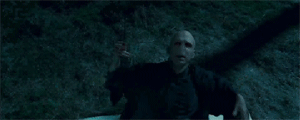Sometimes you read a book, and for whatever reason, you just don't connect with it. That's fine - not everyone loves every book, and if we all liked the same thing then we'd all get bored of each other really quickly. However, every now and then you read a book that you dislike intensely, or get bored by, and it's a chart-topper that is sending everyone else into a spin. Everyone is reading it, or about to read it, or talking about it, and quite often the press for it is good. So your friends like it, the critics like it, the award-givers love it and you're indifferent at best, met with a chorus of 'What?!' every time you sheepishly admit that you gave it a go but you're not a fan. Sometimes, it's easier to just keep your unpopular opinions to yourself so you don't have to explain - usually at length - why you disagree with what appears to be the rest of the world. Well NO MORE, I say: it's time we all stood up and said what we really thought about those authors/books we're not keen on (yes I know some of you don't need encouragement but others do). I'll go first then - here's my less-than-popular opinions on some of the bigger books of recent years.
I Read THE FAULT IN OUR STARS By John Green, And Felt Nothing.
I Don't Get The Hype Around THE HUNDRED YEAR OLD MAN WHO CLIMBED OUT THE WINDOW AND DISAPPEARED By Jonas Jonasson.
I'll have to be really honest here and say I have only read this once, and that was about two years ago, so it may not be entirely fair for me to include this here, because I may change my mind if I re-read it... but whatever, I'm writing it now and right now, I'm not keen. Anyway, I bought this on the strength of the reviews and the title, which at the time I found charmingly eccentric, but now just responsible for the plethora of annoyingly-long titles that are everywhere. All I can remember about this book, beyond the basic plot, is disappointment: whatever I was expecting, I didn't get. The thing with this - and with other titles on this list, actually - is that when I realised I didn't like it, I felt a bit stupid and heartless, like it was my own fault for not liking it. But then I thought about it and realised that I just thought that the whole thing was just a little bit contrived, deliberately - and obviously - aiming for ultimate charm and whimsy.
Plus, the more I think of it, the more I really loathe that does-what-it-says-on-the-cover title.
I Prefer A SPOT OF BOTHER By Mark Haddon to THE CURIOUS INCIDENT OF THE DOG IN THE NIGHT-TIME.
I Read THE FAULT IN OUR STARS By John Green, And Felt Nothing.
Everyone seemed to go nuts for this, the story of Augustus Waters and Hazel Grace, teenage lovers who find each other through a cancer support group. It's a bittersweet romance about appreciating your life and living it to the full, regardless of how much time you've been allotted, which is certainly a good message. It's also apparently a guaranteed tear-jerker - except, my tears remained unjerked. I read this book TWICE and there was nary a wet eye in the house, despite scenes I know I would have found emotive in another book, with characters I liked more (whilst I really liked cynical-for-a-reason Hazel, I found Augustus insufferably perfect for much of the story, and a bit smug). Sorry guys, it just didn't get to me. Maybe that makes me a soulless harpy, but I just couldn't take the love story seriously. Also, whilst I'm at it, I'm not that much of a fan of John Green generally (possibly more on that later).
I Couldn't Finish I AM PILGRIM By Terry Hayes.
Much like Under The Dome by Stephen King, this book started so well for me, with a murder that wasn't as
straight-forward as it seemed, and a ex-Special Forces type trying to
avoid getting sucked back into a life of deceit whilst helping solve the grisly murder. Except, for me, it went downhill pretty quickly after that, with a plot that jumped all over the place, really long exposition-y passages and not an awful lot of direction - yet everyone was talking about this book! I hardly heard anything negative about it, and it even won the 2014 Specsavers Crime/Thriller of the Year award. So was I really the only one who couldn’t get on board
with it? Actually, no, I wasn't - I know of one other person, crime author Paddy Magrane, who agrees with me, but I feel we may be the only ones:
I'm in the minority on #IAmPilgrim. Found it earnest and plodding. But it's just won best crime novel at @natbookawards, so I must be wrong.
— Paddy Magrane (@PaddyMagrane) November 26, 2014
I Don't Get The Hype Around THE HUNDRED YEAR OLD MAN WHO CLIMBED OUT THE WINDOW AND DISAPPEARED By Jonas Jonasson.
I'll have to be really honest here and say I have only read this once, and that was about two years ago, so it may not be entirely fair for me to include this here, because I may change my mind if I re-read it... but whatever, I'm writing it now and right now, I'm not keen. Anyway, I bought this on the strength of the reviews and the title, which at the time I found charmingly eccentric, but now just responsible for the plethora of annoyingly-long titles that are everywhere. All I can remember about this book, beyond the basic plot, is disappointment: whatever I was expecting, I didn't get. The thing with this - and with other titles on this list, actually - is that when I realised I didn't like it, I felt a bit stupid and heartless, like it was my own fault for not liking it. But then I thought about it and realised that I just thought that the whole thing was just a little bit contrived, deliberately - and obviously - aiming for ultimate charm and whimsy.
Plus, the more I think of it, the more I really loathe that does-what-it-says-on-the-cover title.
I Prefer A SPOT OF BOTHER By Mark Haddon to THE CURIOUS INCIDENT OF THE DOG IN THE NIGHT-TIME.
Now let's get something clear: I’m not saying Curious Incident isn’t good, so you can get those hackles down. It is very good - an elegantly told story with the right amount of humour and emotion, raising many questions about the lengths we go to for people we love, and how everyone copes differently with various types of stress (also, go see the play if you can. It's truly fantastic).
But A Spot of Bother also has many of those elements: it's about a recently-retired man who discovers a skin condition on his thigh, becomes convinced it is cancer and begins to quietly lose his mind whilst his family
fall into disarray around him, with everyone struggling to deal with their own problems. To me it’s funnier than Curious Incident, sweeter, more foreboding, scarier, and
just generally better.
Incidentally, I tweeted about this a while ago and Mark Haddon himself replied (also saying he liked my mug), so I feel vindicated by this:
I Don't Think The Death Scenes In HARRY POTTER by J. K. Rowling are very well written.
Possibly THE most controversial thing in this post, but I stand by it. Now, I love Harry Potter - I re-read the series probably once a year, and it never fails to have an impact on me. However, I don't think very good things about some of the various deaths that occur in the latter half of the series: Sirius Black and Cedric Diggory in particular. The problem I had with these was that, when they occurred, I had to go back and re-read the scenes - not because I was shocked by them, or horrified, but because I actually didn't fully register that these were death scenes I was reading. I remember very clearly that I didn't even realise that Sirius had died in Order of the Phoenix until a few pages later when Harry thinks 'Sirius couldn't be dead' or something like that, and I was genuinely shocked, having to rifle back through pages to confirm that I had, indeed, completely missed the death scene of a major character. Admittedly Rowling did get better at writing these scenes in later books - I realised a lot quicker that poor old Fred Weasley had copped it in The Half-Blood Prince (you know you love a book when you're sobbing hysterically at 2am over the death of a fictional character) - but I just don't think the earlier deaths were clear. Maybe that's what she intended, but when you're sat there going 'So are they actually dead?' it doesn't strike me as a huge success.
Incidentally, I tweeted about this a while ago and Mark Haddon himself replied (also saying he liked my mug), so I feel vindicated by this:
@Booksfrom_Boxes thank you. Good to hear a dissenting voice. Plus... I used to own that excellent mug before it got smashed.
— mark haddon (@mark_haddon) May 3, 2014
I Don't Think The Death Scenes In HARRY POTTER by J. K. Rowling are very well written.
Possibly THE most controversial thing in this post, but I stand by it. Now, I love Harry Potter - I re-read the series probably once a year, and it never fails to have an impact on me. However, I don't think very good things about some of the various deaths that occur in the latter half of the series: Sirius Black and Cedric Diggory in particular. The problem I had with these was that, when they occurred, I had to go back and re-read the scenes - not because I was shocked by them, or horrified, but because I actually didn't fully register that these were death scenes I was reading. I remember very clearly that I didn't even realise that Sirius had died in Order of the Phoenix until a few pages later when Harry thinks 'Sirius couldn't be dead' or something like that, and I was genuinely shocked, having to rifle back through pages to confirm that I had, indeed, completely missed the death scene of a major character. Admittedly Rowling did get better at writing these scenes in later books - I realised a lot quicker that poor old Fred Weasley had copped it in The Half-Blood Prince (you know you love a book when you're sobbing hysterically at 2am over the death of a fictional character) - but I just don't think the earlier deaths were clear. Maybe that's what she intended, but when you're sat there going 'So are they actually dead?' it doesn't strike me as a huge success.








